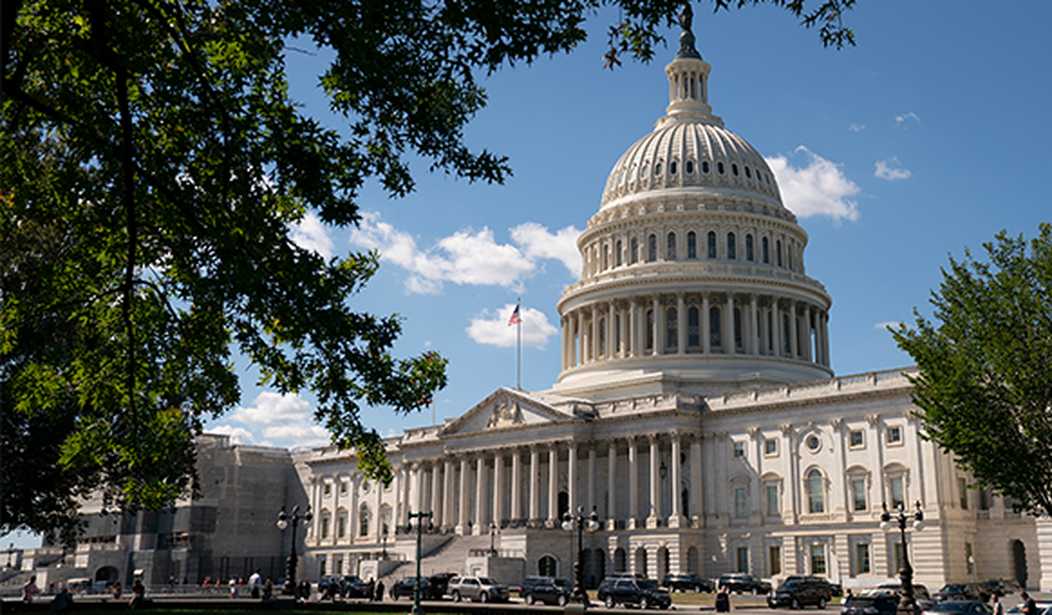Congress’s efforts to discourage the sale of harmful or dangerous counterfeit goods, though well-intentioned, miss the mark. In an effort to crack down on such sales, Congressional lawmakers from both parties have set their sights on the wrong target: lawful online marketplaces.
For instance, consider the Stopping Harmful Offers on Platforms by Screening Against Fakes in E-commerce Act (SHOP SAFE Act) that’s being debated in the House of Representatives and U.S. Senate. The bill seeks to safeguard consumers by preventing online marketplaces from selling “goods that implicate health and safety.”
Formerly a stand-alone bill, the SHOP SAFE Act is now deeply embedded within the proposed America COMPETES Act — a 2,000-plus page monstrosity of a bill. If passed in either format, however, both consumers and online marketplaces will suffer unnecessarily.
First, the SHOP SAFE Act would greatly undermine existing laws aimed at combating the trafficking of harmful or dangerous counterfeit goods. The U.S. already has laws that target criminals benefiting from the sale of counterfeit items (18 U.S. Code § 2320, to be specific). And there are already stiff penalties in place. Instead of making new laws, perhaps lawmakers could focus on enforcement.
Currently, brands with copyright infringement claims can take civil action against counterfeiters in three ways: through direct infringement, which occurs when producing or performing work based on copyrighted work; through vicarious infringement, when secondary liability is correlated to direct infringement; and through contributory infringement, when indirect actions that may lead to infringement of patents.
Recommended
The bill demands online marketplaces take steps “to avoid contributory trademark liability” for counterfeit products sold on the platform—claiming “the steps are reasonable, and the benefit to platforms is significant.” Here the bill’s careful wording is misleading, perhaps intentionally so.
The SHOP Safe Act enumerates it would subject third-party sellers like Craigslist or Facebook Marketplace to 13 requirements to receive “safe harbor” from contributory liability in the event they are sued by unhappy customers. How would lawful small shops, for instance, comply with these strident requirements without hefty legal representation or available financial resources? They won’t because these are unreasonable demands.
Targeting bad actors responsible for selling counterfeit goods is an arduous task. It’s readily known originators of counterfeit goods, not third-party sellers, largely reside outside the United States. Smart criminals create multiple seller accounts and are hard to track. As a result, the proposed requirements will place the burden of “identifying and eliminating” questionable goods squarely on those who didn’t manufacture them. Rather, trademark holders — not platform users — are better positioned to differentiate between real products and counterfeit ones.
Alternatively, lawmakers should lean on Tiffany v. eBay (2010) — a seminal ruling that found online marketplaces like eBay can’t be liable for platform users’ trademark violations. The ruling clarified concerns regarding secondary trademark infringement and is credited for laying the groundwork for online marketplaces today. However, SHOP SAFE Act supporters want to “replace the Tiffany v. eBay framework” by amending the Trademark Act of 1946. That would be a grave mistake.
Furthermore, serious privacy and data concerns could also arise from this proposal. Inset in the bill’s language are provisions requiring third-party sellers to submit “some form of government-issued identification” as reliable documentation to engage on platforms. Another provision for continued participation is requiring registrants to take “reasonable proactive measures” to develop pre-screening processes to disable and remove posts before customers see them advertised. Critics of the legislation point to “notice and takedown” of pirated content under the Digital Millennium Copyright Act (DMCA), which resulted in the taking down of legitimate products, among many of its unintended consequences.
With government agencies now exploring facial recognition to access tax information and confirm one’s identity, lawful Americans are wary of divulging more of their private information—even while engaging on online marketplaces.
A 2019 Pew Research Center poll revealed people distrust the government and private companies, with 70% of respondents admitting their personal data is “less secure.”
In 2020, consumers spent a whopping $2.67 trillion on goods obtained through online marketplaces. Whether it’s selling goods on Etsy or becoming self-employed, entrepreneurs are finding innovative ways to overcome economic challenges brought about by the COVID-19 pandemic.
Congress would be wise to reconsider targeting online marketplaces carte blanche under the guise of consumer protection. If this proceeds, online marketplaces will become unviable for upstart, legitimate small business owners.
Gabriella Hoffman is a Young Voices Contributor. Follow her on Twitter at @Gabby_Hoffman

























Join the conversation as a VIP Member